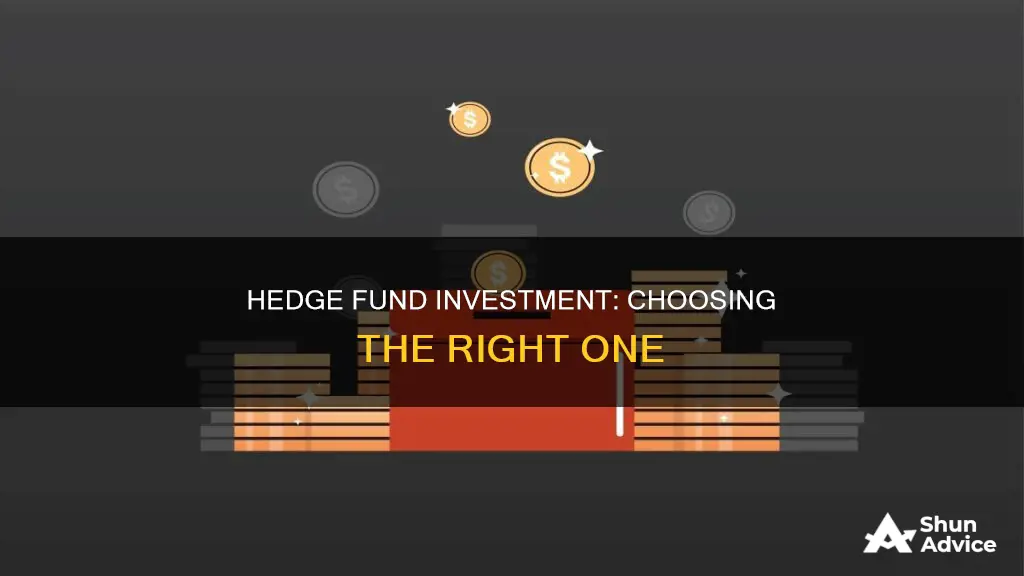
Hedge funds are alternative investments that use various methods, such as leveraged derivatives, short-selling, and other speculative strategies, to beat the market. They are known for complex risk management strategies and more sophisticated portfolio management techniques than other types of investment products. However, they are not subject to the same regulations as mutual funds and may not be required to file reports with the U.S. Securities and Exchange Commission (SEC). Due to their aggressive investment strategies, hedge funds are much riskier than most other investments. They are also not very liquid and may only allow investors to withdraw their money after a certain amount of time or during specific periods of the year.
Hedge funds employ unique investment strategies and charge high fees for their services. They also require minimum investment amounts, often in the millions, and are geared towards wealthy, financially informed institutions and individuals. As a result, they are not suitable for the average investor.
If you are considering investing in a hedge fund, it is important to do your research and understand the associated risks and eligibility requirements.
| Characteristics | Values |
|---|---|
| Risk | Higher than traditional investments |
| Investor Type | High-net-worth individuals, pension funds, institutional investors |
| Investor Income | $200,000 annual income or $1 million in net assets excluding primary residence |
| Investment Minimums | $100,000 to upwards of $2 million |
| Returns | Historically underperformed stock market indices |
| Strategies | Leveraged, debt-based investing, short-selling, real estate, art, currency |
| Fees | Asset management fee (1-2%) and performance fee (20%) |
What You'll Learn

Hedge fund eligibility requirements
Hedge funds are known for their complex risk management strategies and aggressive investment strategies. They are considered to be riskier than most other investments and are subject to government restrictions and high buy-in costs. Due to these factors, hedge funds are inaccessible to most non-accredited investors.
In the US, the Securities and Exchange Commission (SEC) places regulations on who can invest in hedge funds. To invest in hedge funds as an individual, you must be an institutional investor, like a pension fund, or an accredited investor.
Accredited investors are defined as those with a net worth of at least $1 million in assets (excluding their primary residence) or an annual income of $200,000 ($300,000 for married couples). These investors must also have the financial means to accept higher risk and exhibit sophistication by way of professional credentials or experience evaluating complex investments.
Institutional investors include pension funds, endowments, sovereign wealth funds, foundations, and insurance companies. As of 2020, institutional capital accounted for nearly 3/4 of the total cash flows to the industry.
In addition to the above, some hedge funds also accept investors based on their ability to absorb losses, tax status, citizenship, and more.
Minimum initial investment amounts for hedge funds range from $100,000 to upwards of $2 million. These funds are also illiquid, with investors often only able to withdraw their money after a certain amount of time or during set periods of the year.
It is important to note that eligibility requirements for hedge funds aim to shield less qualified participants from undue risk exposure.
Mutual Fund Investing: What You Need to Know
You may want to see also

Hedge fund fees
Hedge funds typically charge a management fee and a performance fee. The management fee is an annual fee and is usually 2% of the assets under management (AUM). This fee is charged regardless of the fund's performance. The performance fee is charged when the fund achieves a certain level of profit. This fee is usually 20% of the profits made by the fund above a predefined benchmark. This fee structure is often referred to as "two and twenty".
The management fee is used to pay for the fund's operations, including staff salaries and administrative expenses. The performance fee is used to reward the fund's key executives and portfolio managers. This fee structure has been criticised in recent years as being too high, especially as hedge funds have struggled to perform optimally since the 2008 financial crisis. Some investors have sought out hedge funds that charge lower fees, and politicians have sought to have performance fees taxed as ordinary income rather than capital gains.
In response to this criticism, some hedge funds have adopted alternative fee structures. For example, startup and emerging hedge funds may offer "founders shares", which entitle investors to a lower fee structure. Some funds may also offer a discount to investors who are willing to lock up their investments for a specified time period. Additionally, most hedge funds include a watermark clause, which states that a fund manager can only charge performance fees after the fund has generated new profits.
India's Alternative Investment Funds: Exploring the Options
You may want to see also

Historical hedge fund performance
By 2019, hedge funds were up again, returning 6.96% on average. But during that same time, the S&P 500 increased by 28.9%, the Dow Jones Industrial Average rose by 22.3%, and the NASDAQ grew by 35.2%.
From 1980 through 2008, hedge funds averaged returns of 6.1% after fees, according to the Journal of Financial Economics. During that same period, the S&P 500 rose 12.5% each year on average.
Hedge fund returns were also somewhat lacklustre in the 2010s, but they could be improving soon. With the surge in inflation, recession fears, and mounting geopolitical upheavals around the world, passive investing strategies could be in for more volatility, which could help improve hedge funds' relative performance.
In summary, hedge funds have historically underperformed stock market indices. However, they are designed to provide growth despite market conditions, so they can be a good option for diversifying an investment portfolio.
Invest Wisely: Choosing the Right Army Fund
You may want to see also

Hedge fund managers
Due to the large role they play in managing investors' money, it is important to ensure that any hedge fund manager is qualified to handle the investment. It is possible to review a hedge fund manager's disciplinary history, fees and investment strategy by looking at their Form ADV, which can be found on their website or via the SEC's Investment Adviser Public Disclosure database.
The largest hedge funds in the world include Citadel, Bridgewater, AQR, and D.E. Shaw.
TSP Funds: Where to Invest for Maximum Returns
You may want to see also

Hedge fund investment strategies
Hedge funds are alternative investment vehicles that use various strategies to generate positive returns. They are designed to produce returns regardless of market conditions and are often seen as exclusive clubs that only qualified investors can access.
- Long-short equity (L/S): This strategy involves taking "long" positions on stocks perceived as undervalued and "short" positions on overvalued stocks. The goal is to profit from both the upside and downside movements in stock prices.
- Market-neutral: This strategy aims to achieve a portfolio beta of zero by pairing long and short positions in equivalent amounts to minimise market risk.
- Short-selling (short-only funds): These funds specialise in short-selling, which is intended to reduce risk and capital losses during market declines, as well as profit from them.
- Event-driven investing: These funds invest in companies expected to undergo significant changes, such as mergers and acquisitions, corporate bankruptcies, or operational restructurings.
- Relative value arbitrage: This strategy involves exploiting temporary pricing differentials between closely related securities by purchasing and selling different financial instruments based on near-term price movement predictions.
- Activist investing: This strategy involves influencing corporate decisions by exerting shareholder rights, either through friendly engagement or hostile criticism of the company.
- Global macro: This strategy focuses on investment decisions based on broader economic and political themes, such as interest rates, inflation, and international developments.
- Quantitative investing (systematic trading): These funds use systematic software programs and complex mathematical models to guide investment decisions, removing human emotion and bias from the process.
- Distressed debt investing: This strategy involves investing in the mispriced securities of troubled companies that have filed for bankruptcy protection or are expected to do so soon.
- Multi-strategy: Multi-strategy funds tend to prioritise capital preservation and risk management, allocating risk across different investment strategies, asset classes, and geographical locations.
- Credit fund strategies (fixed income): Credit funds allocate capital to debt securities, such as corporate debt issuances and government bonds, and can employ various strategies like long/short credit, distressed debt, and arbitrage approaches.
Bond Index Funds: Choosing the Right Investment for You
You may want to see also
Frequently asked questions
A hedge fund pools money from investors to buy securities or other types of investments. They employ unique investment strategies to outperform the market and charge high fees for doing so.
Due to their complex strategies and higher-risk profiles, hedge funds are typically limited to accredited investors, qualified purchasers, and institutional investors who meet specific income, net worth, or asset thresholds set by regulatory bodies.
Hedge fund minimum investment requirements vary widely but typically range from $100,000 to $1 million or more. Some funds may have lower minimums for accredited investors, while others may require higher amounts for institutional investors.
When choosing a hedge fund to invest in, it is important to consider the fund's investment strategies, performance, fees, and minimum investment requirements. It is also essential to ensure that you meet the eligibility criteria for investing in the fund.







